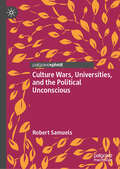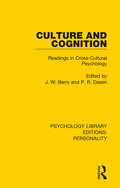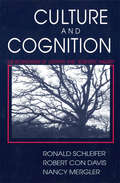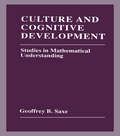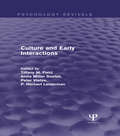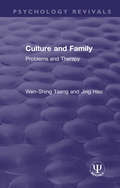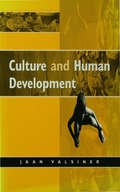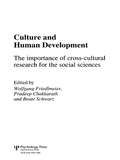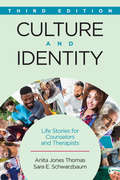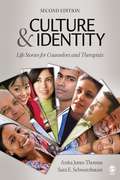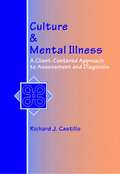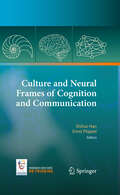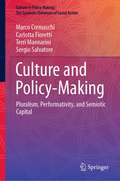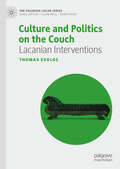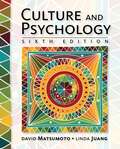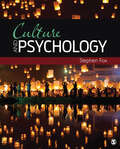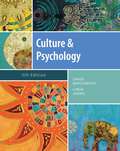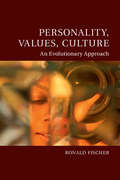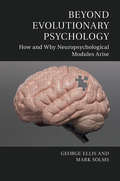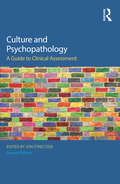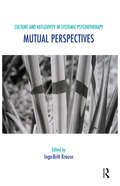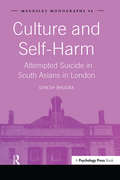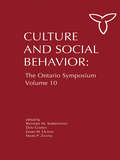- Table View
- List View
Culture Wars, Universities, and the Political Unconscious
by Robert SamuelsThis book argues that whenever we are talking about cancel culture, identity politics, political correctness, antisemitism, conspiracy theories, or the alt-Right, we are dealing with a culture war, which often pits two sides against each other in a split world of good and evil. These political representations rely on a set of unconscious processes best understand through psychoanalysis. As this book argues, if you want to comprehend the rhetoric of the Right, the Left, conservatives, and centrists, it is necessary to see how these ideologies rely on unacknowledged defense mechanisms, fantasies, fears, and desires. In fact, if we do not employ psychoanalytic concepts to examine our political investments, we will be unable to get to the root causes driving these social productions. Each chapter of this book looks at a specific writer‘s or politician’s take on contemporary culture wars. One of the reoccurring themes concerns the way free speech has been weaponized by different ideological formations, and this battle over free expression is often centered on the role that universities play in balancing the demands among competing social interests. This book will not only clarify what universities should be, but it will also help us to move beyond our polarized political world.
Culture and Cognition: Readings in Cross-Cultural Psychology (Psychology Library Editions: Personality)
by J.W. Berry and P.R. DasenOriginally published in 1974, studies of cultural influences on cognition, carried out from a variety of theoretical and methodological stances, were collected for the first time in this volume. The editors placed particular emphasis on selecting material by authors from many countries who had been working with people from a wide range of cultures. In a general introduction they provide an historical overview of the major issues, and draw together the most recent attempts to bring methodological sophistication to this difficult area of enquiry. Suggestions for future research on basic problems are to be found in an epilogue, along with a consideration of some possible applications of these studies to problems of education and social change. A comprehensive bibliography with over 600 entries is included in the volume.
Culture and Cognition: The Boundaries of Literary and Scientific Inquiry
by Robert Con Davis Ronald Schleifer Nancy MerglerThis groundbreaking book challenges the disciplinary boundaries that have traditionally separated scientific inquiry from literary inquiry. It explores scientific knowledge in three subject areas—the natural history of aging, literary narrative, and psychoanalysis. In the authors' view, the different perspectives on cognition afforded by Anglo-American cognitive science, Greimassian semiotics, and Lacanian psychoanalysis help us to redefine our very notion of culture.Part I historically situates the concepts of meaning and truth in twentieth-century semiotic theory and cognitive science. Part II contrasts the modes of Freudian case history to the general instance of Einstein's relativity theory and then sets forth a rhetoric of narrative based on the discourse of the aged. Part III examines in the context of literary studies an interdisciplinary concept of cultural cognition.Culture and Cognition will be essential reading for literary theorists, historians and philosophers of science; semioticians; and scholars and students of cultural studies, the sociology of literature, and science and literature.
Culture and Cognitive Development: Studies in Mathematical Understanding
by Geoffrey B. SaxeResearchers examining children's mathematics acquisition are now questioning the belief that children learn mathematics principally through formalized, in-school mathematics education. There is increasing evidence that children gain mathematical understanding through their participation in out-of-school cultural practices and that their mathematics only occasionally resembles what they learn in the classroom. Culture and Cognitive Development presents the latest research by Dr. Geoffrey Saxe on this issue. In examinations of the mathematical understandings of child candy sellers in an urban center in northeastern Brazil, Dr. Saxe finds sharp contrasts between mathematics as practiced in school and in real-world settings. In this unique research project he presents a penetrating conceptual treatment of the interplay between culture and cognitive development, filling a void in current research literature. Subjects examined include: the interplay between sociocultural and cognitive developmental processes the differences between math knowledge learned in and out of the classroom the ways math learning in the classroom is modified by children's out-of-school mathematics and, correspondingly, how practical out-of-school mathematics use is modified by formal education
Culture and Early Interactions (Psychology Revivals)
by Tiffany M. Field, Anita Miller Sostek, Peter Vietze and P. Herbert LeidermanIn the late 1960s, after a period of intense acceleration of the pace of research on human infancy, a number of investigators – some anthropologists, some psychologists, some psychiatrists and paediatricians, and even a few ethologists – developed the conviction that certain contributions to the understanding of infancy would come from, and perhaps only come from, cross-cultural and cross-population studies. This book, originally published in 1981, represents part of the first fruit of that conviction, and its impressive range of chapters justifies not only the belief itself but also the several rationales behind it.
Culture and Family: Problems and Therapy (Psychology Revivals)
by Wen-Shing Tseng Jing HsuOriginally published in 1991, this landmark guide gave brilliant insights on dealing with the cultural aspects of family mental health. It systematically reviews various dimensions of the family from a cross-cultural perspective, including system, development, behaviour, and functioning. It then thoroughly examines the problems and dysfunctions that can occur in families of different cultural backgrounds, and finally proposes culturally appropriate assessments and treatments for resolving these family problems.Family counsellors, therapists, and researchers who study the family will find practical suggestions on how to assess and evaluate the family with cultural considerations; clinical suggestions on providing culturally relevant, effective care of the family; and theoretical elaboration on the cultural implications of family therapy. Instead of focusing on families of a particular ethnic or cultural background, the book gives comprehensive coverage to subjects that related to cultural aspects of the family function, problems, and therapy. The authors’ unique backgrounds, which include analysis of the cross-cultural aspects of human behaviour, knowledge in family research, and clinical experience in family therapy, add immeasurably to this book's important contribution.
Culture and Human Development: A Theory Of Human Development
by Jaan ValsinerThis major new textbook by Jaan Valsiner focuses on the interface between cultural psychology and developmental psychology. Intended for students from undergraduate level upwards, the book provides a wide-ranging overview of the cultural perspective on human development, with illustrations from pre-natal development to adulthood.A key feature is the broad coverage of theoretical and methodological issues which have relevance to this truly interdisciplinary field of enquiry encompassing developmental psychology, cultural anthropology and comparative sociology. The text is organized into five coherent parts: Part 1: Developmental theory and methodology; Part 2: Analysis of environments for human development Part 3: Cultural organization of pregnancy and infancy; Part 4: Early childhood development; and Part 5: Entering the world of activities - culturally ruled.
Culture and Human Development: The Importance of Cross-Cultural Research for the Social Sciences
by Pradeep Chakkarath Wolfgang Friedlmeier Beate SchwarzAs intercultural encounters between people in the modern world become more common, important questions have been raised about the nature of culture-specific differences and similarities. Focusing on the relationship between culture and human development, this timely book offers an interdisciplinary exploration of key developmental processes. It combines psychological and sociological approaches with cross-cultural research to examine phenomena such as the transfer of culture between generations and the universality of attachment theory. Drawing on detailed research from a range of cultural groups, leading international researchers consider the impact of social change and modernization on the development of the individual and at the societal level. Theoretical and methodological issues are presented in terms of how to apply the results of cross-cultural research as well as recent empirical research done in specialized areas of the field. Finally, short-term intercultural exchanges are examined and used to suggest some of the potential practical uses of cross-cultural research for the future. This book will be essential reading for anyone studying or researching in cultural psychology, cross-cultural psychology, acculturation or behavioral development. It will also prove an invaluable source of information for anyone interested in sociology and the social sciences in general.
Culture and Identity: Life Stories for Counselors and Therapists
by Sara E. Schwarzbaum Anita Jones ThomasCulture and Identity engages students with autobiographical stories that show the intersections of culture as part of identity formation. The easy-to-read stories centered on such themes as race, ethnicity, gender, class, religion, sexual orientation, and disability tell the real-life struggles with identity development, life events, family relationships, and family history. The Third Edition includes an expanded framework model that encompasses racial socialization, oppression, and resilience. New discussions of timely topics include race and gender intersectionality, microaggressions, enculturation, cultural homelessness, risk of journey, spirituality and wellness, and APA guidelines for working with transgendered individuals.
Culture and Identity: Life Stories for Counselors and Therapists
by Sara E. Schwarzbaum Anita Jones ThomasCulture and Identity engages students with autobiographical stories that show the intersections of culture as part of identity formation. The easy-to-read stories centered on such themes as race, ethnicity, gender, class, religion, sexual orientation, and disability tell the real-life struggles with identity development, life events, family relationships, and family history. The Third Edition includes an expanded framework model that encompasses racial socialization, oppression, and resilience. New discussions of timely topics include race and gender intersectionality, microaggressions, enculturation, cultural homelessness, risk of journey, spirituality and wellness, and APA guidelines for working with transgendered individuals.
Culture and Identity: Life Stories for Counselors and Therapists (2nd Edition)
by Sara E. Schwarzbaum Anita Jones ThomasCulture and Identity: Life Stories for Counselors and Therapists, Second Edition combines rich and powerful real life autobiographies with sound theoretical formulations that explore race, ethnicity, gender, class, religion, as well as, in this edition, sexual orientation and disability. Ideal for multicultural counseling courses with a diversity element, this text's engaging stories allow readers to understand the significance and influence of culture on identity development, sense of self, family relationships, interpersonal relationships, and life choices. As the storytellers reveal their real life struggles, readers will develop a greater understanding of intra-group differences, increase their repertoire of clinical skills, and sharpen their multicultural competency.
Culture and Mental Illness: A Client-Centered Approach
by Richard J. CastilloIn our increasingly multicultural global society, it has become important for practitioners to consider social and cultural factors when looking at the causes of, and treatments for, mental illness. The American Psychiatric Association recognized the role of culture in the recent DSM-IV. But the DSM-IV leaves practitioners wondering just how they should go about assessing those cultural factors. This book picks up where the DSM-IV leaves off.
Culture and Neural Frames of Cognition and Communication (On Thinking #3)
by Ernst Pöppel Shihui HanCultural neuroscience combines brain imaging techniques such as functional magnetic resonance imaging and event-related brain potentials with methods of social and cultural psychology to investigate whether and how cultures influence the neural mechanisms of perception, attention, emotion, social cognition, and other human cognitive processes. The findings of cultural neuroscience studies improve our understanding of the relation between human brain function and sociocultural contexts and help to reframe the "big question" of nature versus nurture. This book is organized so that two chapters provide general views of the relation between biological evolution, cultural evolution and recent cultural neuroscience studies, while other chapters focus on several aspects of human cognition that have been shown to be strongly influenced by sociocultural factors such as self-concept representation, language processes, emotion, time perception, and decision-making. The main goal of this work is to address how thinking actually takes place and how the underlying neural mechanisms are affected by culture and identity.
Culture and Policy-Making: Pluralism, Performativity, and Semiotic Capital (Culture in Policy Making: The Symbolic Universes of Social Action)
by Sergio Salvatore Terri Mannarini Marco Cremaschi Carlotta FiorettiThis book advances the understanding and modelling of sensemaking and cultural processes as being crucial to the scientific study of contemporary complex societies. It outlines a dynamic, processual conception of culture and a general view of the role of cultural dynamics in policy-making, drawing three significant methodological implications: pluralism, performativity, and semiotic capital. It focuses on the theoretical and methodological aspects of the analysis of culture and its dynamics that could be applied to the developing of policymaking and, in general, to the understanding of social phenomena. It draws from the experience and data of a large-scale project, RECRIRE, funded by the H2020 program that mapped the symbolic universes across Europe after the economic crisis. It further develops the relationship between culture and policy-making discussed in two previous volumes in this series, and constitutes the ideal third and final element of this trilogy. The book is a useful tool for academics involved in studying cultural dynamics and for policy-oriented researchers and decision-makers attentive to the cultural dimensions of the design, implementation and reception of public policies.
Culture and Politics on the Couch: Lacanian Interventions (The Palgrave Lacan Series)
by Thomas SvolosIn this book, Thomas Svolos tests the claim that a practicing psychoanalyst is afforded a unique perspective on issues of politics, social and cultural affairs, trained, as they are, to look out for that which is not readily transparent to a patient. This might be something opaque, something bizarre even, something that is part of the experience of the patient that they are not conscious of, what Sigmund Freud and Jacques Lacan called, at different points in their work, desire, libido, or, jouissance. It argues that by taking account, in one way or another, of desire, libido and jouissance, we might find another dimension to political, social and cultural matters, a dimension that is present, but generally opaque, to those who deal with them. In a series of original texts and edited dialogues, brought together for the first time, this lively and accessible work offers novel insights on topics ranging from race, climate change and partisan politics, to science fiction and Bruce Springsteen. It will appeal to students, scholars and those with a general interest in psychoanalysis, politics, cultural studies and critical theory.
Culture and Psychology
by David Matsumoto Linda JuangThis field-leading text puts psychological theories and concepts into a cross-cultural framework that invites you to discover, question, challenge, and ultimately understand the relationship between culture and psychology through exploration of such topics as changing gender roles, sexuality, health, aggression, personality, and mate selection. <p><p> It all adds up to a text that will leave you with a deeper, more complex understanding of the nature of culture, its relationship to psychological processes, and the differences and similarities between cultures in our increasingly globalized world.
Culture and Psychology
by Stephen H. FoxUsing an engaging storytelling approach, Culture and Psychology introduces students to culture from a scientific yet accessible point of view. Author Stephen Fox integrates art, literature, and music into each chapter to offer students a rich and complete picture of cultures from around the world. The text wholly captures students’ attention while addressing key concepts typically found in a Psychology of Culture or Cross-Cultural Psychology course. Chapters feature personalized, interdisciplinary stories to help students understand specific concepts and theories, and encourage them to make connections between the material and their own lives.
Culture and Psychology
by Stephen H. FoxUsing an engaging storytelling approach, Culture and Psychology introduces students to culture from a scientific yet accessible point of view. Author Stephen Fox integrates art, literature, and music into each chapter to offer students a rich and complete picture of cultures from around the world. The text wholly captures students’ attention while addressing key concepts typically found in a Psychology of Culture or Cross-Cultural Psychology course. Chapters feature personalized, interdisciplinary stories to help students understand specific concepts and theories, and encourage them to make connections between the material and their own lives.
Culture and Psychology (5th Edition)
by David Matsumoto Linda JuangThis book puts psychological theories and concepts into a cross-cultural framework that invites readers to discover, question, and ultimately, understand the relationship between culture and psychology through exploration of topics like changing gender roles, sexuality, self-esteem, aggression, personality, and mate selection.
Culture and Psychology: An Evolutionary Approach (Culture and Psychology)
by Ronald FischerHumans are complex social beings. To understand human behaviour, an integrated perspective is required - one which considers both what we regularly do (our personality traits) and what motivates us (our values). Personality, Values, Culture uses an evolutionary perspective to look at the similarities and differences in personality and values across modern societies. Integrating research on personality and human values into a functional framework that highlights their underlying compatibilities (driven by shared genetic and brain mechanisms), Fischer describes how personality is shaped by the complex interplay between genes and the environment, both over the course of human evolution and within the lifespan of individuals. He proposes a gene-culture coevolution model of personality and values to explain how and why people differ around the world and how genes, economics, social conditions, and climate jointly shape personality.
Culture and Psychology: How and Why Neuropsychological Modules Arise (Culture and Psychology)
by Ellis Mark Solms George F. R.The nature/nurture question is an age-old problem. Beyond Evolutionary Psychology deals with the relation between culture, evolution, psychology and emotion, based both in the underlying biology, determined by our evolutionary heritage, and in the interaction of our brain with the physical, ecological and social environment, based in the key property of brain plasticity. Ellis and Solms show how the brain structures that underlie cognition and behaviour relate to each other through developmental processes guided by primary emotional systems. This makes very clear which brain modules are innate or 'hard-wired', and which are 'soft-wired' or determined through environmental interactions. The key finding is that there can be no innate cognitive modules in the neocortex, as this is not possible on both developmental and genetic grounds; in particular there can be no innate language acquisition device. This is essential reading for students and scholars of evolutionary psychology and evolutionary biology.
Culture and Psychopathology: A Guide To Clinical Assessment
by Jon StreltzerSince the first edition of Culture and Psychopathology was published, a growing national and international interest in how culture impacts mental disorders and how psychopathology is influenced by culture has become a rising field of focus. In this extensive revision, chapters have been updated with new material and now incorporate the DSM-5’s classification system of mental disorders. This book is international in scope, not focusing on specific cultural groups, but rather how the cultural context affects the presentation and the process of assessment of different types of psychopathology. This edition highlights case studies and practical guidelines to support clinicians who assess patients of any cultural background.
Culture and Reflexivity in Systemic Psychotherapy: Mutual Perspectives (The Systemic Thinking and Practice Series)
by Inga-Britt KrauseThe therapeutic relationship is increasingly becoming a central topic in systemic psychotherapy and cross-cultural thinking. Here, experienced systemic psychotherapists offer their reflections and thoughts on the issues of race, culture, and ethnicity in the therapeutic relationship. The aim is to develop this area of systemic practice, to place culture squarely at the centre of all systemic psychotherapy practice as a model for all psychotherapy practice, to encourage both trainees and experienced systemic psychotherapists to pay attention to race, culture, and ethnicity as central issues in their own and their clients' identities, and to inform researchers who use qualitative research techniques such as ethnography. This book moves the issues of culture, race and equity into the centre of psychotherapeutic practice, including that which involves therapeutic encounters across culture, racial and ethnic divides. It develops an approach to cultural transference and demonstrates that thinking about culture, race and ethnicity does not belong at the margin.
Culture and Self-Harm: Attempted Suicide in South Asians in London
by Dinesh BhugraAttempted suicide is a matter of serious public health concern. Culture and Self-Harm considers the factors that may contribute to this increased rate of self-harm and suicide among south Asians in London, which cannot be blamed on migration alone. Cultural pressures that dictate the way stress is dealt with are examined and the effects of cultural conflict and changes in an individual's cultural identity are considered. Culture and Self-Harm offers a new preventative strategy that will be of theoretical and clinical interest to all mental health professionals, social workers, voluntary and primary care workers. It will help them understand significant factors that play a key role in the lives of south Asians who attempt suicide and what lessons can be learnt for dealing with other ethnic groups with the same problems.
Culture and Social Behavior: The Ontario Symposium, Volume 10 (Ontario Symposia on Personality and Social Psychology Series #Vol. 10)
by Dov Cohen James M. Olson Mark P. Zanna Richard M. SorrentinoCross-cultural differences have many important implications for social identity, social cognition, and interpersonal behavior. The 10th volume of the Ontario Symposia on Personality and Social Psychology focuses on East-West cultural differences and similarities and how this research can be applied to cross-cultural studies in general.Culture and Social Behavior covers a range of topics from differences in basic cognitive processes to broad level cultural syndromes that pervade social arrangements, laws, and public representations. Leading researchers in the study of culture and psychology describe their work and their current perspective on the important questions facing the field. Pioneers in the field such as Harry Triandis and Michael Bond present their work, along with those who represent some newer approaches to the study of culture. Richard E. Nisbett concludes the book by discussing the historical development of the field and an examination of which aspects of culture are universal and which are culture-specific. By illustrating both the diversity and vitality of research on the psychology of culture and social behavior, the editors hope this volume will stimulate further research from psychologists of many cultural traditions.Understanding cultural differences is now more important than ever due to their potential to spark conflict, violence, and aggression. As such, this volume is a "must have" for cultural researchers including those in social, cultural, and personality psychology, and interpersonal, cultural, and political communication, anthropology, and sociology.
